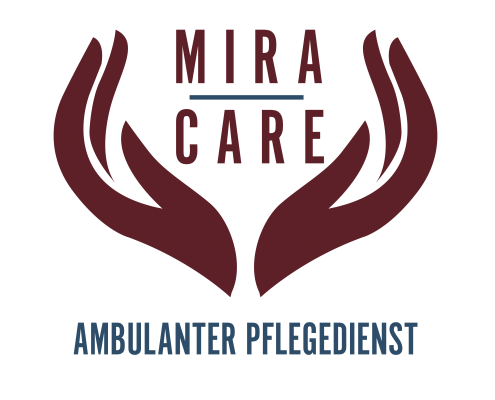In addition, technology offers strategies for enhancing our ability to study CBT and other interventions more systematically and more rigorously. In the sections below we elaborate on how these possibilities may accelerate development of cognitive behavioral interventions in the next 30 years. Platforms for delivering addiction interventions https://ecosoberhouse.com/article/substance-abuse-counseling/ via technology are diverse and multiplying rapidly. In the sections below we will cover only those which (1) are explicitly or predominantly cognitive-behavioral in focus (although several include components of MI and other interventions), (2) the primary targeted outcome is alcohol or drug use, and (3) the intervention is delivered online.
Many people with substance abuse problems are able to quit or can change their unhealthy behavior. Similar limitations occurred in a Swiss study of an 8-module internet-based program encompassing CBT and MI called Snow Control for individuals reporting cocaine use at least 3 times in the past 30 days (Schaub, Sullivan, Haug, & Stark, 2012). Participants were randomly assigned to the Snow Control program or an 8-session online psychoeducation control. Treatment engagement was very low, with only 18/96 (19%) allocated to the Snow Control program accessing a module and only 8 of the 100 allocated to control. Outcome data did not indicate significant differences in cocaine use outcomes by group. Three and six-month follow-up indicated significant reductions in drinking outcomes, but no significant differences between conditions (PDA at 3 months follow up was 73.3 for OA+SR compared with 71.2 for SR only).
Treatment programs
This is sometimes referred to as medication-assisted treatment (MAT), and is mostly used to treat addiction to opioids, heroin, prescription pain relievers, and alcohol. Medication is typically used in combination with other treatment approaches, like therapy and self-care. When the counselor has concentrated the treatment to cater specifically to the patients mental health needs, he or she will work to address the addiction.
Group brief cognitive behavioral therapy for suicide prevention … – BMC Psychiatry
Group brief cognitive behavioral therapy for suicide prevention ….
Posted: Tue, 05 Dec 2023 09:51:14 GMT [source]
Recovering from addiction is difficult, but when therapeutic alliances develop, clients are more likely to discuss their hardships, which can help them on their path to recovery. Consequently, professionals who pursue this career path play an important role in the field of clinical mental health counseling. Professionals who have an interest in helping people cope with and overcome addiction may be drawn to a career as a substance abuse counselor. Completing an advanced education, such as an online master’s in counseling, can provide the skills and acumen needed to be successful in this field.
Motivational Therapies
Also, increased self-efficacy has been found to mediate the relationship between drink refusal training (a specific ingredient of CBT) and drinking outcomes (Witkiewitz, Donovan, & Hartzler, 2012). Despite these findings, many trials have not found CBT to enhance coping or self-efficacy to a greater degree than comparison conditions, raining questions about the uniqueness of these mechanisms (Litt et al., 2008). Thus, consistent support for CBTs putative mechanisms of action remain elusive, as it does for many interventions (Emmelkamp et al., 2014). Substance abuse and addiction disorders are among the toughest illnesses to treat. Substance abuse counselors, sometimes referred to as addiction counselors, provide the mental, emotional and behavioral health services individuals need to recover from drug and alcohol abuse, gambling addictions and other behavioral issues.

Approaches to treating substance misuse and addiction have undergone many changes over time. In the past, addiction was often regarded as a character flaw or moral failure. John C. Umhau, MD, MPH, CPE is board-certified in addiction medicine and preventative medicine. For over 20 years Dr. Umhau was a senior clinical investigator at the National Institute on Alcohol Abuse and Alcoholism of the National Institutes of Health (NIH).
Alcohol
If you have the compassion, empathy, and determination this field requires, take your first step in helping people heal by learning more about our certificate and bachelor’s programs. Bureau of Labor Statistics (BLS), the demand for substance abuse, behavioral disorder https://ecosoberhouse.com/ and mental health counselors is expected to grow 22% between 2021 and 2031, adding nearly 80,000 new jobs. The job outlook for substance abuse counselors is expected to grow 23% from 2020 to 2030, which is faster than the average for other occupations.
- Therefore, bot activity that doesn’t conform to BLS usage policy is prohibited.
- Finally, we speculate how CBT may evolve during the next 30 years, if informed by developments in technology, cognitive science and neuroscience.
- When the counselor has concentrated the treatment to cater specifically to the patients mental health needs, he or she will work to address the addiction.
- According to a 2019 report from a task force that examined the behavioral health workforce, Illinois had a below-national-average rate of 30 substance abuse disorder providers for every 1,000 adults identified as having such a disorder.
Substance abuse counselors are experts in the impacts of addiction and substance abuse as well as the mental and physical treatments for these issues. They evaluate patients’ health, recommend treatments and help them develop skills to aid in recovery. These professionals work with individuals who experience a range of substance use issues. This may involve working with people with alcohol use disorders, but they may also work with clients with substance use disorders involving drugs such as cocaine, heroin, marijuana, and prescription medications.
Motivational Enhancement Therapy
After discussion with you, your health care provider may recommend medicine as part of your treatment for opioid addiction. Medicines don’t cure your opioid addiction, but they can help in your recovery. These medicines can reduce your craving for opioids and may help you avoid relapse.
- You can abuse and get addicted to the nicotine in cigarettes, just like other drugs.
- Built for working professionals with a bachelor’s degree, it provides the knowledge and skills needed to support people struggling with addiction as well as advance related careers in the helping professions.
- It can be especially effective for members who also have a mental health condition, or who started using to deal with distressing emotions, trauma, or excessive stress.
- Substance abuse counselors typically need at least a bachelor’s degree in substance abuse counseling or a related field.
Often, children, partners, siblings and parents are on the receiving end of abuse, violence, threats and emotional upheaval because of alcohol and drug issues. But you can remove yourself — and any children — from a dangerous situation. Treatment may include counseling, education, job services, family services and life skills training. For example, Mayo Clinic offers various addiction services and has a thorough team approach to treating addiction.
Sign up for updates from UC Online
A psychiatrist is a medical doctor who specializes in mental health, including substance use disorders. They’re trained to understand the complex relationship between mental health and substance misuse and how to deliver evidence-based treatment for addiction. In some cases, our care teams prescribe medication to treat an underlying mental health condition, like depression or anxiety. In other cases, medication is used to help reduce cravings, ease withdrawal symptoms, and help prevent relapse.

